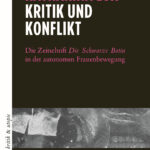Gender and Women’s History Research Centre (ACU); Linda Zampoldortia (Web)
Time: 15.-16.07.2024
Venue: Melbourne – and virtual space
Proposals by: 03.06.2024
This workshop aims to further the study of intercultural encounters in the pre-modern world through the lens of gender. More specifically, the organizers mean to foster a discussion on how masculinities could affect the processes of cultural encounter and their outcomes, but also how masculinities emerged changed in turn from such processes.
Past scholarship on masculinity has demonstrated that masculinity, understood as a system of practices and far from being a monolith, is subjected to both historical change and to culturally dependent expressions (Connell 2015, 2016). The study of masculinities has successfully investigated previously unexplored aspects of specific cultures and contexts (Hadley 1999, Neal 2008, Song 2004) and how they changed in time (Asikainen 2018, Holt 2010, McNamara 1994).
In this workshop the organizers aim to build on previous research on masculinities during intercultural contacts and in colonial contexts (Broomhall 2023, Strasser 2020, Alter 2004, Teltscher 2000, Beckles 1996, Sinha 1995), to engage with encounters between different masculinities. They look forward to receiving contributions on any region of the pre-modern world, from all disciplines and fields of Humanities and Social Sciences. The organizers particularly welcome papers on the religious and/or the emotional and affective dimensions of encounter.
Possible topics of discussion include:
– how did men understand masculinities that were embodied by other cultures?
– how did masculinities produced by different cultural contexts engage with each other?
– how could contrasting ideas of masculinity influence one another?
– what kind of hybrid masculinities could emerge from intercultural contacts?
Please send an abstract of 200 words and a short bio in English, by 3rd June 2024, to linda.zampoldortia@acu.edu.au. The organizers aim to publish selected papers in the conference proceedings.
Source: HSozuKult

 Svenja Bethke (Univ. of Leicester) and Eliza McKee (New York Univ.)
Svenja Bethke (Univ. of Leicester) and Eliza McKee (New York Univ.)  Frauenbildungsstätte Frauenhetz
Frauenbildungsstätte Frauenhetz  Jaarboek Vrouwengeschiedenis | Yearbook of Women’s History; guest editor Irene Jacobs
Jaarboek Vrouwengeschiedenis | Yearbook of Women’s History; guest editor Irene Jacobs  Vortragsreihe „Geschichte am Mittwoch“
Vortragsreihe „Geschichte am Mittwoch“  de Gruyter
de Gruyter